Stranded on a hike? 8 things you should never do in a survival situation
From panicking to ditching your pack, here’s what not to do if things go wrong in the wild

Getting lost, stranded or injured on a hike isn’t just something that happens to mountaineers and novices and it’s not limited to technical hikes either. Over the years, I’ve seen people break ankles and dislocate shoulders on well-maintained paths just a mile or two from the trailhead, known experienced hikers to succumb to cold weather even with all the right gear and seen others make it to the top of a 14er in flip flops with nothing more than a bit of wincing.
Being prepared for any hike with navigation skills, dressing in hiking layers and wearing good hiking boots is all part of reducing your risk on a mountain, but whether you come down unscathed is honestly partly down to chance. You could do everything right and still find yourself spending the night on a mountain when you hadn’t planned to. If that happens, here’s what not to do.
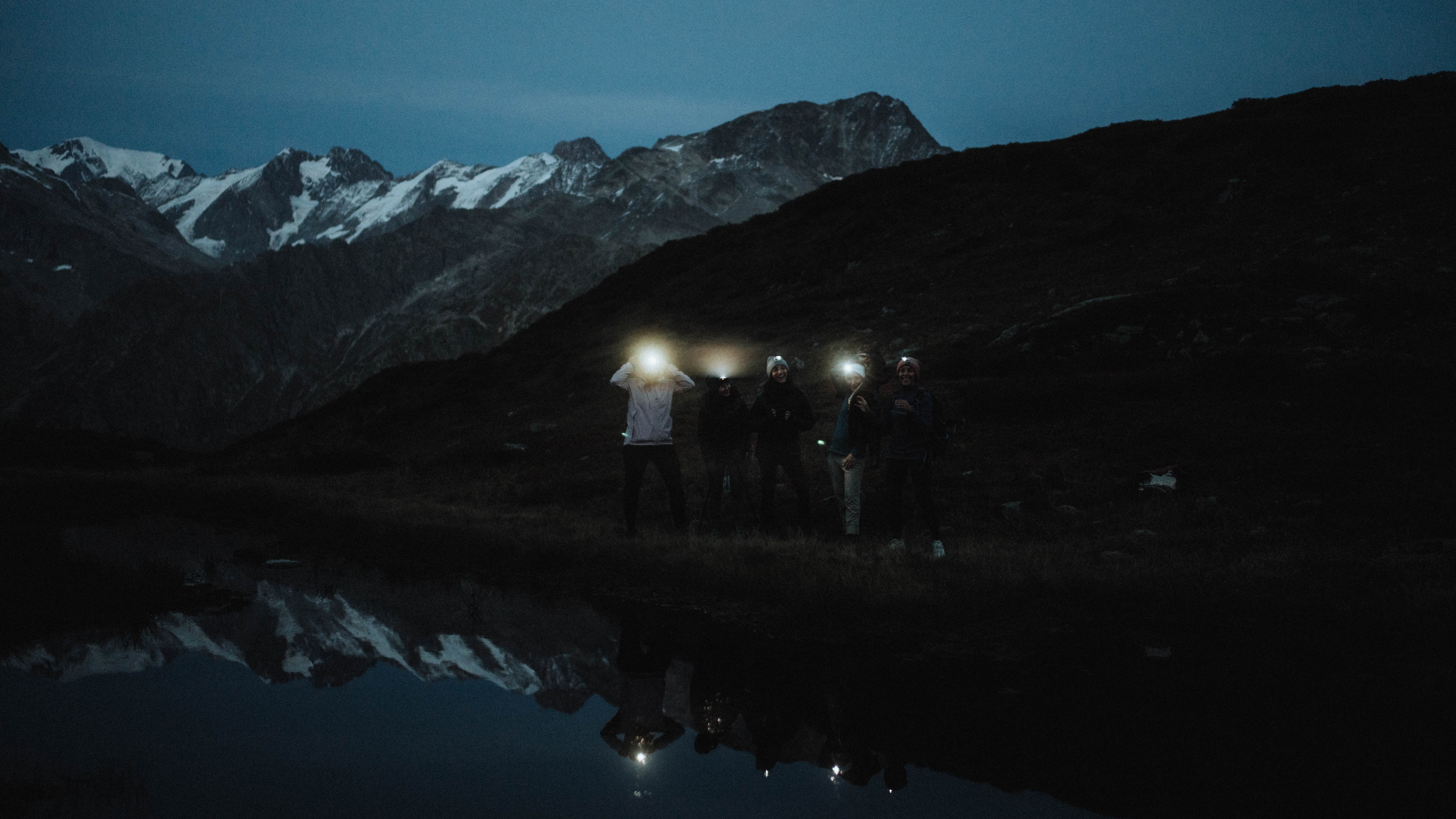
1. Panic
First and foremost, if you fall and can’t get up or realize you’re lost, try your best not to panic. We all respond to stress differently, and a survival situation could wield a wide range of outcomes, but fight or flight mode and rational thought are well-known to be incompatible.
At best, stress hinders your ability to fully think through the consequences of your decisions, according to one 2017 study. At worst, it might cause you to act rashly and you might find yourself picking what seems like the shortest route down hill, only to find yourself cliffed out and in much more danger than you were when you were still on the trail.
No matter how dire the circumstances seem, do your best to pause, try some deep breathing and think through your options. Can you call mountain rescue? Are you able to retrace your steps? Is it time to take shelter while bad weather passes? Figure out what tools you have at your disposal and make a plan to survive.
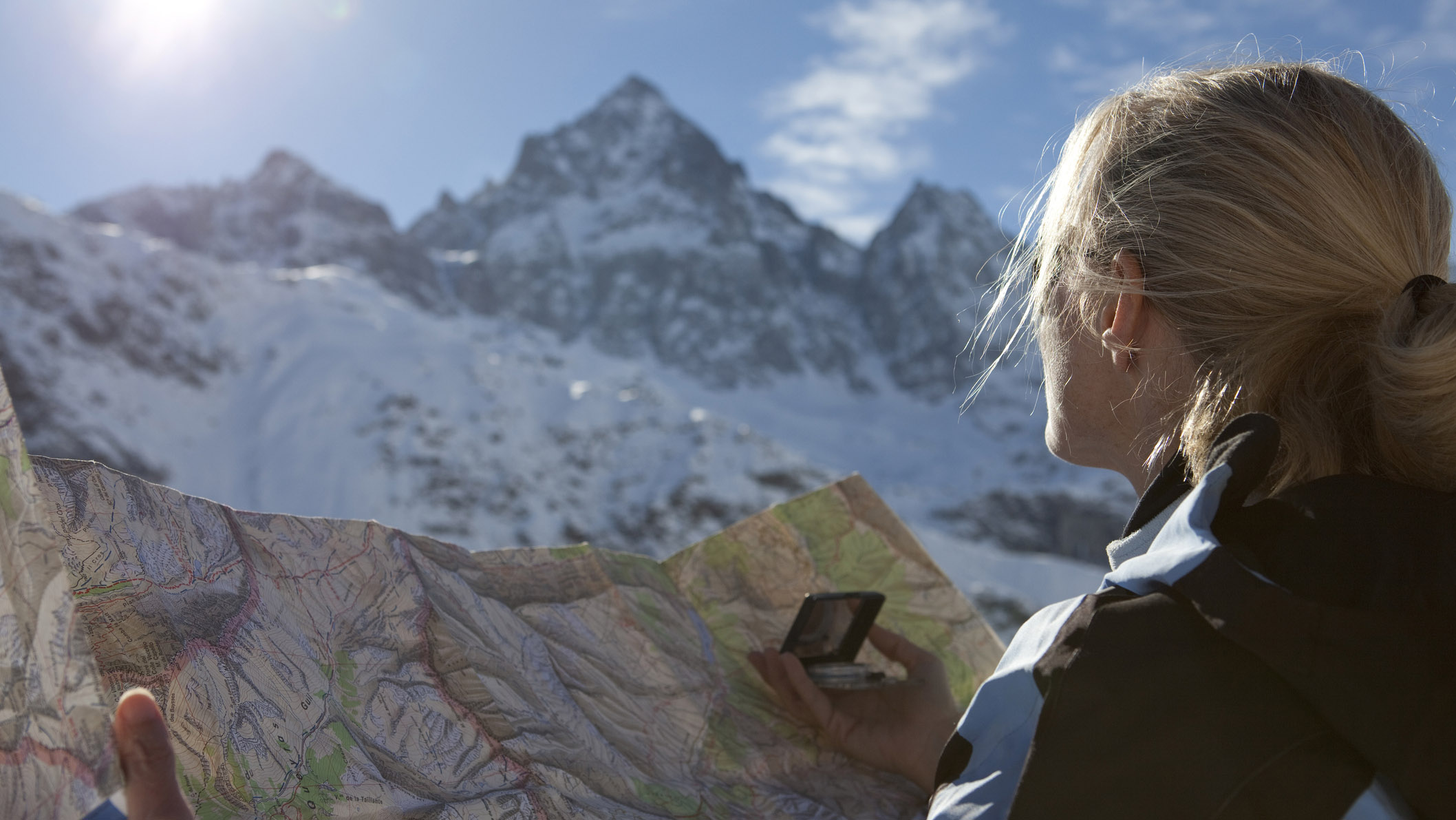
2. Wait to ask for help
Something that every member of mountain rescue I’ve spoken to has mentioned is the importance of asking for help as soon as you need it. It can feel embarrassing to admit that you’re lost, or have run out of energy and simply can’t get down, but waiting can make matters worse.
Mountain rescue exists to help you. Carry a satellite communicator like a Garmin inReach for heading into the backcountry or use your cell phone to dial 911 (999 in the UK) and ask for mountain rescue when you realize you’re in trouble. They might try to talk you to safety or they might tell you to stay put and come and get you; what they won’t do is make you feel ashamed for calling.
All the latest inspiration, tips and guides to help you plan your next Advnture!
3. Underestimate the mountain
If you fancy yourself a bit of a survivalist or have just watched a lot of action movies, you might have acquired some fanciful notions that swinging across a ravine like tarzan or wading across a river is a good idea. There’s a general rule of thumb in hiking, however, which is that you should always respect the mountain.
Between unstable terrain, weather, rockslides and wildlife, there’s a lot of risk associated with hiking and it’s easy to think that technology can save you from any situation, but that bubbling brook might belie powerful currents and what looks like a simple downclimb might leave you trapped in a precarious position. Assume that there’s always more danger than meets the eye and err on the side of caution – even if that means taking the long route.
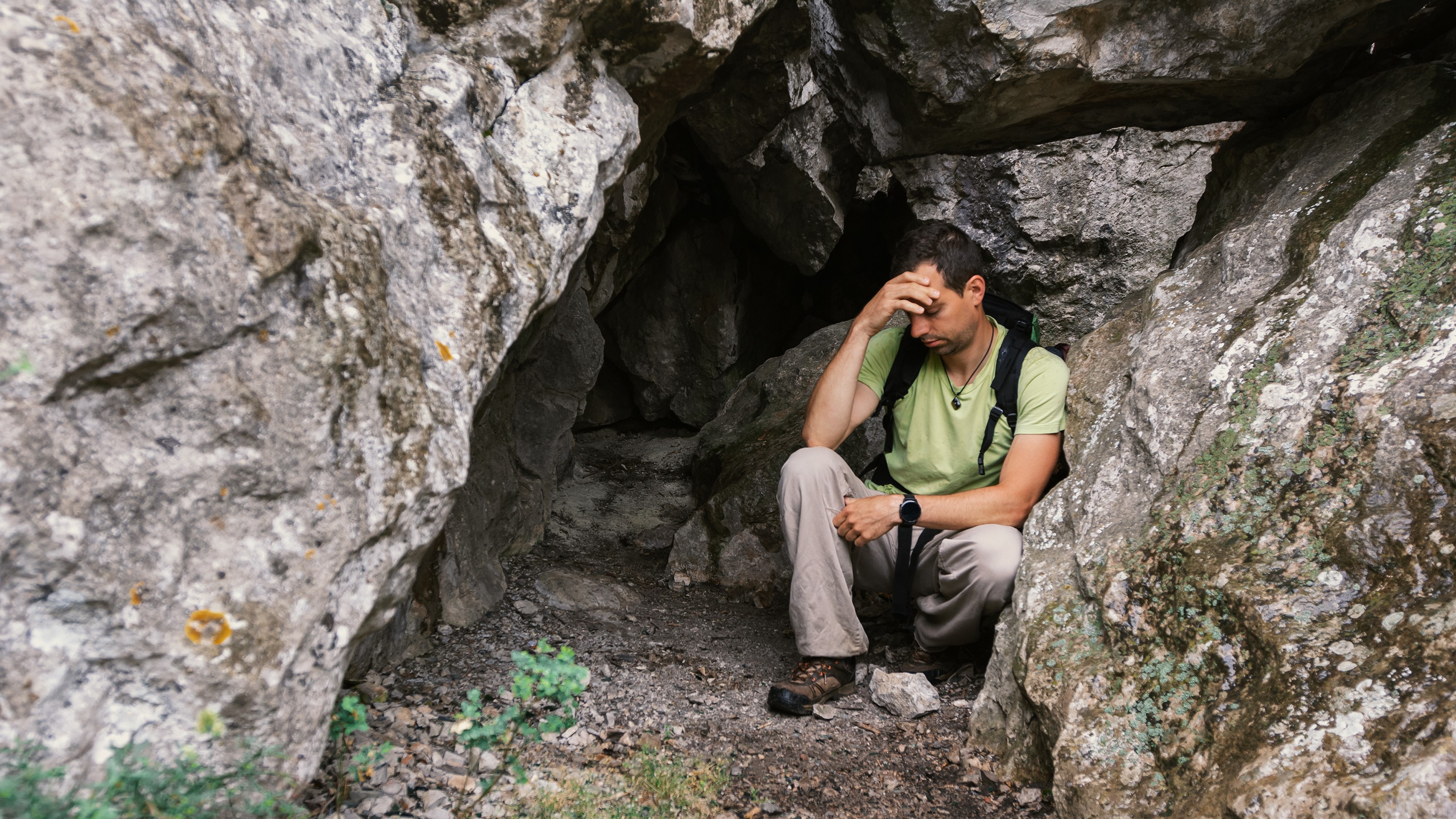
4. Leave the scene
Whether you should stay in place or keep moving all depends on the situation. It’s possible that mountain rescue might try to help guide you down the mountain over the phone, in which case you should follow their instructions if you can.
However, if you have alerted mountain rescue to your location and you know they are on the way to get you, or there’s any other reason why people might be coming to a particular area to search for you, don’t then leave the scene and try to find your way to safety. Doing so will only make it more difficult for people to find you, and that could put other lives at risk.
If you must move to stay warm, move on the spot by doing some jumping jacks. Ideally, you’ll have an emergency blanket, bag or shelter to stay protected from the elements, but at minimum, sit down on your backpack rather than directly on the cold ground.
5. Get dehydrated
Many survival experts will warn against drinking water in the wild and there’s some wisdom to this. After all, if you’re stuck out in the backcountry for days and become sick with diarrhea, you could end up in even more trouble. Then again, dehydration can be deadly too and is far more common among hikers and backpackers.
The rule of three says that you can only survive three days without water and at a certain point, the risk of dying of dehydration becomes greater than that of Giardia. You can obviously bypass this issue by carrying a water filter on every hike, but if you forgot yours, don’t allow yourself to become so dehydrated that you can’t keep yourself safe. Read our article on how to safely source water in the wild to reduce your risk.
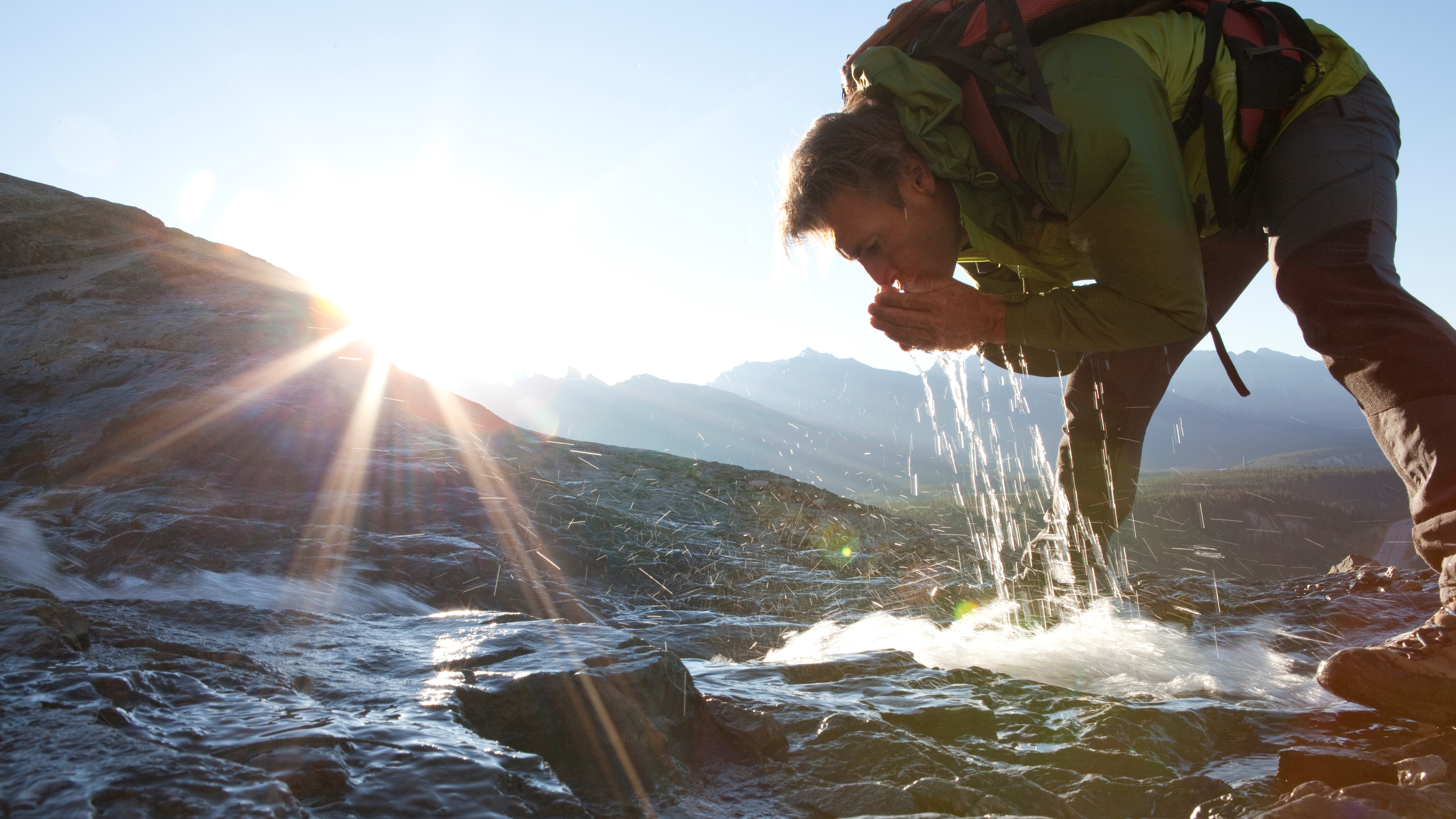
6. Eat just anything
Though it’s vital to stay hydrated, your body can last for three weeks without food, so though hunger may be unpleasant, don’t just start chowing down on any old berries or mushrooms you see in the forest, unless you happen to be a foraging expert, or picking scraps off a carcass you stumble across. Doing so is quite likely to make you ill.
Obviously, if you’re in the wilderness for many days, you’re going to start thinking about food, but if it’s a case of waiting for dawn so you can hike out or help can arrive, just ration your remaining hiking snacks and know that you’ll be okay.
7. Not accepting that you’re spending the night
If you’re armed with a headlamp, experienced and able to follow a trail, hiking through the night isn’t always the worst idea, as long as you’re careful. You may be able to get to safety and you’ll probably stay warmer. That said, if you’re breaking trail, you’re lost and it’s dark, you could just wade into deeper trouble.
Once it starts to get dusky, it’s often safer to accept that you’re spending the night out there and get busy building a shelter or setting up your bivy sack, building a campfire and focusing on staying warm and getting some rest. This way you can conserve your energy for daylight, then refocus your attention on getting to safety.
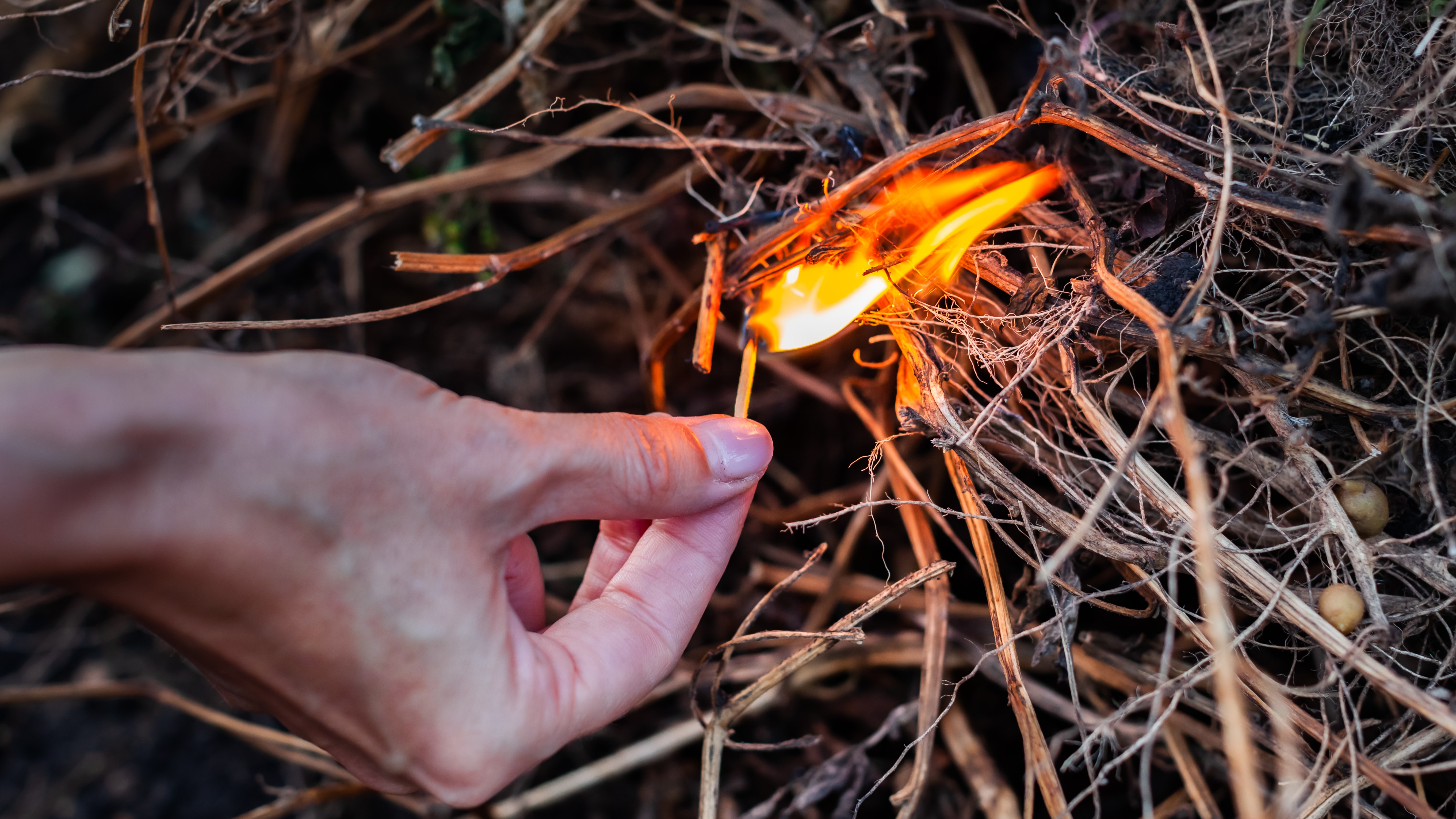
8. Ditch your pack
If you’ve been on your feet all day or are scrambling and navigating tight spaces, you might wonder if you shouldn’t ditch your pack to make things easier. There are survival situations where you should ditch your backpack – when you fall through ice for example – but if you’re on dry land, lost or injured, and think that dropping some weight might help, think again.
Unless you’ve stocked your pack with items you really don’t need, like reading material, there’s a good chance everything in there can help you survive a night on the mountain. That backpack might be heavy, but it mostly likely contains water, a first aid kit, waterproof jacket and your gloves, all things that could save your life. Keep all of that with you and if it becomes a burden, take a break and learn how to adjust your backpack so it’s easier to carry.
Julia Clarke is a staff writer for Advnture.com and the author of the book Restorative Yoga for Beginners. She loves to explore mountains on foot, bike, skis and belay and then recover on the the yoga mat. Julia graduated with a degree in journalism in 2004 and spent eight years working as a radio presenter in Kansas City, Vermont, Boston and New York City before discovering the joys of the Rocky Mountains. She then detoured west to Colorado and enjoyed 11 years teaching yoga in Vail before returning to her hometown of Glasgow, Scotland in 2020 to focus on family and writing.

